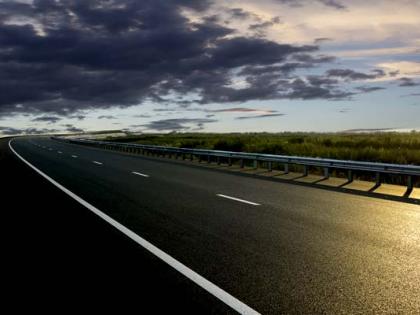Delhi-Mumbai Expressway to Open by March 2026; PM Narendra Modi Might Inaugurate
By Lokmat Times Desk | Updated: October 5, 2025 15:21 IST2025-10-05T15:20:15+5:302025-10-05T15:21:03+5:30
The ambitious Delhi-Mumbai Expressway, aimed at cutting travel time between the two major cities by half, is expected to ...

Delhi-Mumbai Expressway to Open by March 2026; PM Narendra Modi Might Inaugurate
The ambitious Delhi-Mumbai Expressway, aimed at cutting travel time between the two major cities by half, is expected to open next year. According to reports, South Delhi MP Ramvir Singh Bidhuri announced that the six-lane highway connecting Delhi’s DND Flyway to Mumbai’s Sarai Kale Khan will be completed before March 2026. He added that Prime Minister Narendra Modi will inaugurate the project upon completion. Once operational, this corridor will mark the final link of the expressway passing through South Delhi, significantly improving connectivity between the national capital and India’s financial hub.
Travel Time and Project Features
The Delhi-Mumbai Expressway is one of India’s most significant infrastructure developments, designed to transform long-distance road travel. Once opened, it will reduce the travel duration between Delhi and Mumbai from nearly 24 hours to just 12 hours. Built with advanced technology and sustainable materials, the high-speed corridor is expected to provide a smoother, faster, and more eco-friendly driving experience. Its modern design focuses on improved traffic flow, safety, and reduced vehicular emissions, positioning it as a benchmark for future expressway projects in India.
India’s Longest Expressway
Stretching over 1,380 kilometers, the Delhi-Mumbai Expressway will be the longest in India. It will traverse six states — Delhi, Haryana, Rajasthan, Madhya Pradesh, Gujarat, and Maharashtra. The route will connect major urban centers such as Jaipur, Kota, Udaipur, Bhopal, Indore, Ahmedabad, and Surat. This extensive network is expected to greatly enhance regional connectivity, reduce logistics expenses, and boost economic activities along the corridor. The expressway will also facilitate faster transport of goods and services across major industrial and commercial zones, supporting India’s growing infrastructure ambitions.
Wildlife-Friendly and Sustainable Design
A unique feature of the Delhi-Mumbai Expressway is its wildlife-conscious infrastructure. The project includes three animal overpasses and five underpasses spanning a total of seven kilometers, ensuring unhindered movement for animals across forested regions. According to Business Standard, it will be Asia’s first and the world’s second expressway to integrate such eco-sensitive measures. Additionally, the project emphasizes sustainability through the use of solar energy, rainwater harvesting, and extensive tree plantation along the route, reflecting a modern balance between development and environmental preservation.